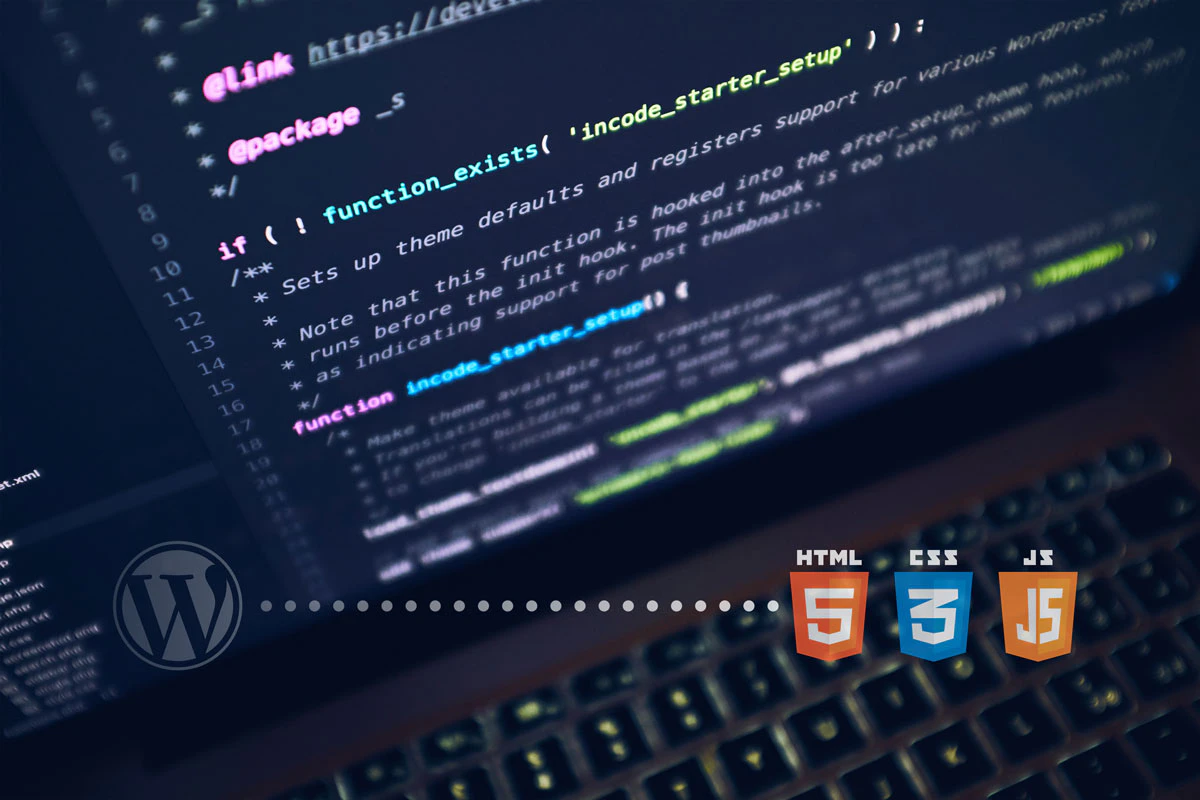9 Reasons to Choose a Static Site over WordPress
As a development shop that specializes in WordPress, it seems a bit counter-intuitive to be publishing an article on why NOT to use WordPress. It's because WordPress is simply a tool. It's our main choice of CMS for many clients. And as a tool, its job is to help get the job done efficiently, not to be the job itself.

Alternatively, a static website is still a very good choice for most. We can loosely define it as a site without a database, and a very small, sometimes absent, backend. It can be as simple as a handful of HTML, CSS and Javascript files that are placed on a server, which is exactly what WordPress serves at the end of the day anyway. In this case, we're just omitting all of the complications that it can bring.
As the most popular platform powering the web, we have many clients who are familiar, either having used or been recommended, with WordPress. They come to us asking if we can build them a WordPress site that fits all their needs. It's at this point that we try and get them to forget about WordPress until we know exactly what their needs are, and do our best not to put the cart before the horse.
Here are some common reasons to reconsider:
1. Performance
Let's approach this in order of importance. The biggest reason to reconsider WordPress is the hit you take in speed and performance. This isn't to say WordPress is slow. It's only slow in the wrong hands (see #8). However, the mere fact that it's database dependent and needs to compile on the fly will increase the overhead that's needed to render a simple HTML page.
If you're not running something like a media site or blog, that requires frequent updates and a database, there's no reason to build your 5 page business card website on top of such a dynamic engine as WordPress.
2. Security
Again, WordPress is only insecure in the wrong hands. It, in fact, has many good security measures to ensure its safety. However, due to the fact that it powers over 1/4 of the internet's traffic, and its code is open-sourced and viewable by all, it becomes a prime target for hackers.
In order to ensure your installation is secure, you must keep things extremely current and squeaky clean. Installing unknown (or just poorly coded) plugins, leaving the WordPress core a few versions behind, or hosting on dubious platforms are all grounds for getting hacked. This leads us to our next point.
3. Updates and Maintenance
Because of the nature of a dynamic site like WordPress, it requires much more attention. As mentioned, we need to keep it up-to-date, however, updating the core and especially plugins can often break the functionality of a site. We must then make sure we have a staged version of the site where we perform updates and testing regularly before migrating to the live version.
Also, because we've now assumably relinquished some of the updates to the client, they are prone to making mistakes while updating pages. Even if limited access and training is given, it's still more susceptible to human error. What often happens, is the client becomes somewhat weary of updating, or no longer willing to spend time on updates themselves because it requires time and attention. So they fall back to calling us in order to safely and efficiently make the updates for them. This all could have been avoided and saved a lot of money.
4. Cost
It should be clear by now that if it's not absolutely necessary to update your site yourself on a weekly basis, that the hidden and explicit costs of WordPress will not be worth it over its simpler static counter-part.
Paying us to do updates and maintenance on the site adds up. In fact, oftentimes, it takes slightly longer for us to update your content in WordPress than in a statically coded page if the update is somewhat complex.
Building a WordPress site from scratch is more expensive than a static one. In fact, step 1 of the process is often simply coding a static site as the foundation for the rest.
Hidden costs in a WordPress site can include: more expensive hosting, costs of repairs, more complicated environments to maintain, upgrading, migrating, testing, finding a competent developer, premium plugins, and more. A static site will share some of these costs, but almost always to a lesser degree.
5. Flexibility
As mentioned, a WordPress site is derived from a static one. It follows that the static site will always be more flexible because it's not boxed in by the constraints of WordPress. Here are some of the things you're not limited to when not tied to WordPress:
- PHP as a programming language
- A Database
- A WordPress developer.
Every WordPress developer should be able to code a static site, but the inverse isn't always true. It's a specialized skill.
- Aesthetics.
WordPress works off of templates and so we must make the design of our pages consistent and template oriented in order to take advantage of WordPress. Otherwise we fall into coding a template for each page and it becomes a quasi static/WordPress monstrosity.
- Changing platforms in the future.
In the future, your needs may change and become more specific. You may need to port your site to a specific framework or platform. This is trivial with a static site because it's the foundation for everything anyway. It's not the same case when you have a few hundred WordPress pages that are half in your database, half in your code, and Frankensteined together with plugins.
6. Database
Having a database creates overhead every time you try and load a page. Your site must go to the database, retrieve information, compile it together with your code, and output it to the browser. A static site skips the first 3 steps. A lot of this can be overcome with a lot of caching and performance tricks in WordPress, but it's a needless complication for most small websites.
7. Versioning, Migrations & Maintainability
A good site will have its code versioned so other developers can contribute to it, either now or in the future; have a deployment process for moving the site from a developer's computer, to a stage, to a live production; and be easily maintained and flexible enough to add enhancements as the requirements of the site grows.
All of this can be done with WordPress, but again, it's much simpler, faster and effectively done with a static site. This saves you money and time - two things we noticed most of our clients value more than their attachment to WordPress.
8. Better Talent Pool
This one is a bit more subtle but still important. WordPress has a very low barrier to entry due to the fact that you can build a site off of a pre-existing WordPress theme (template), throw plugins at it to add functionality, and use page builders to customize the look. This means, some "developers" never even touch the site's code. When it comes time to address more complicated issues such as performance or specific functionality, they may become stuck due to their lack of technical knowledge.
Someone that builds a static website from scratch knows their code thoroughly and is less likely to be limited by the out-of-the-box functionality for which WordPress is known.
Also, as mentioned previously, you are choosing from a larger pool of competent developers when looking for someone to build a static site.
9. Do you even need it?
The final reason could've been the first, because it's the basis for all of the other points. It all comes down to the question, "do you really need it?" In general, choosing a tool that does 10 things when you only need 1 of them done isn't a great idea. A multi-functional tool is comparatively more expensive, less efficient and/or reliable in each task, and requires more specialized knowledge to use. Do you really need a jack-of-all trades, master of none, for a simple task? Or would a single hammer for a couple of nails do the job nicely?
